Space
Sign up for our newsletter
We summarize the week's scientific breakthroughs every Thursday.
-
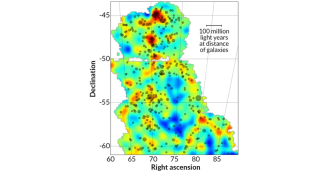 Astronomy
AstronomyMap pinpoints location of invisible dark matter
A new map shows that dark matter is concentrated in regions that contain a lot of ordinary matter in the form of galaxy clusters.
By Andrew Grant -
 Astronomy
AstronomyMap pinpoints location of invisible dark matter
Dark matter can’t be seen, but a new map shows where it’s hiding. The map confirms that the mysterious matter is concentrated in regions that contain a lot of ordinary matter in the form of galaxy clusters.
By Andrew Grant -
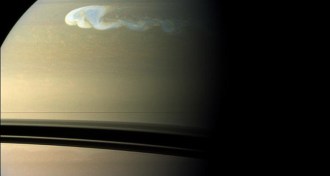 Planetary Science
Planetary ScienceAtmospheric water may be giving Saturn its spots
Planetary scientists think that water in Saturn’s atmosphere could be driving the massive storms that appear every few decades in the ringed planet’s atmosphere.
-
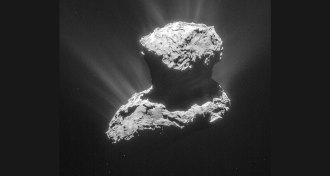 Planetary Science
Planetary ScienceComet 67P shows no sign of magnetism
Philae found no evidence of a magnetic field on comet 67P/Churyumov-Gerasimenko, but did send back some clues about its rough landing.
-
 Astronomy
AstronomyAfterglow alerts astronomers to gamma-ray burst
Astronomers have spotted the remnant glow from a gamma-ray burst without first observing its beam of high-energy gamma rays.
By Andrew Grant -
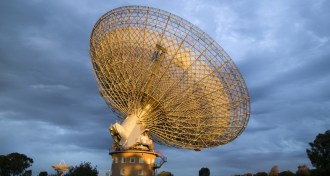 Astronomy
AstronomySource of puzzling cosmic signals found — in the kitchen
One type of radio burst has a pretty mundane origin: prematurely opened microwave ovens.
-
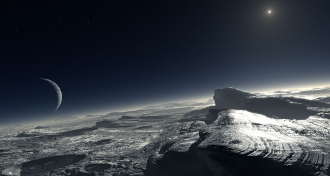 Planetary Science
Planetary ScienceA modest Plutonian proposal
Flagstaff, Echidna, Spock. Naming conventions for the landscapes of Pluto and its moons are proposed ahead of the arrival of the New Horizons probe.
-
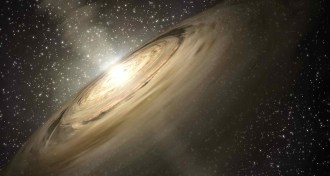 Astronomy
AstronomyCyanides around young star signal complex organic chemistry
Abundances of cyanide compounds around a young star match those found in comets in our solar system.
-
 Science & Society
Science & SocietyOne anniversary to celebrate, one to contemplate
In this issue, both feature articles focus on anniversaries, though of two very different kinds.
By Eva Emerson -
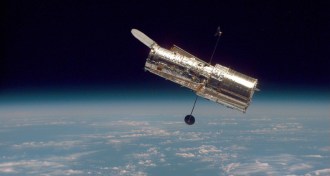 Astronomy
AstronomyCelebrating 25 years of the Hubble Space Telescope
The Hubble Space Telescope has served for more than two decades as the sharpest eyes ever to peer into the universe.
-
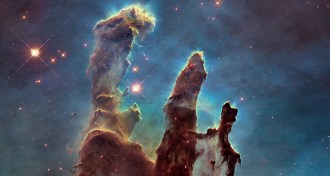 Astronomy
AstronomyThe art of astronomy
Astronomer Zoltan Levay uses the Hubble Space Telescope to create stunning images of cosmic landscapes.
-
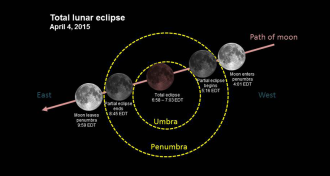 Astronomy
AstronomySaturday’s lunar eclipse will be total, but brief
A brief total lunar eclipse on April 4 favors observers from western North America to Australia.